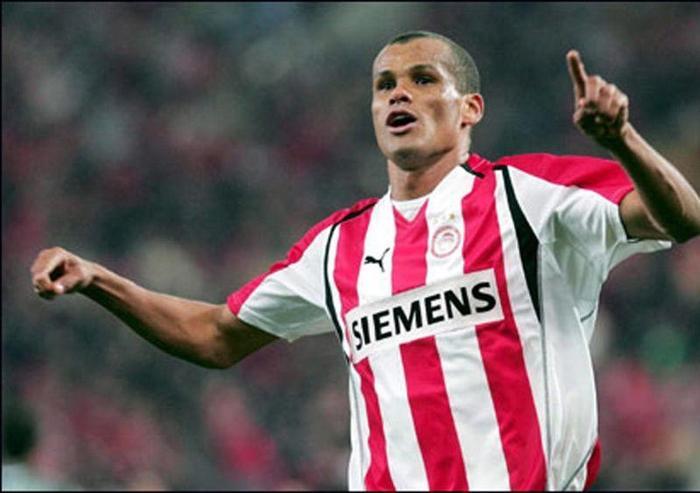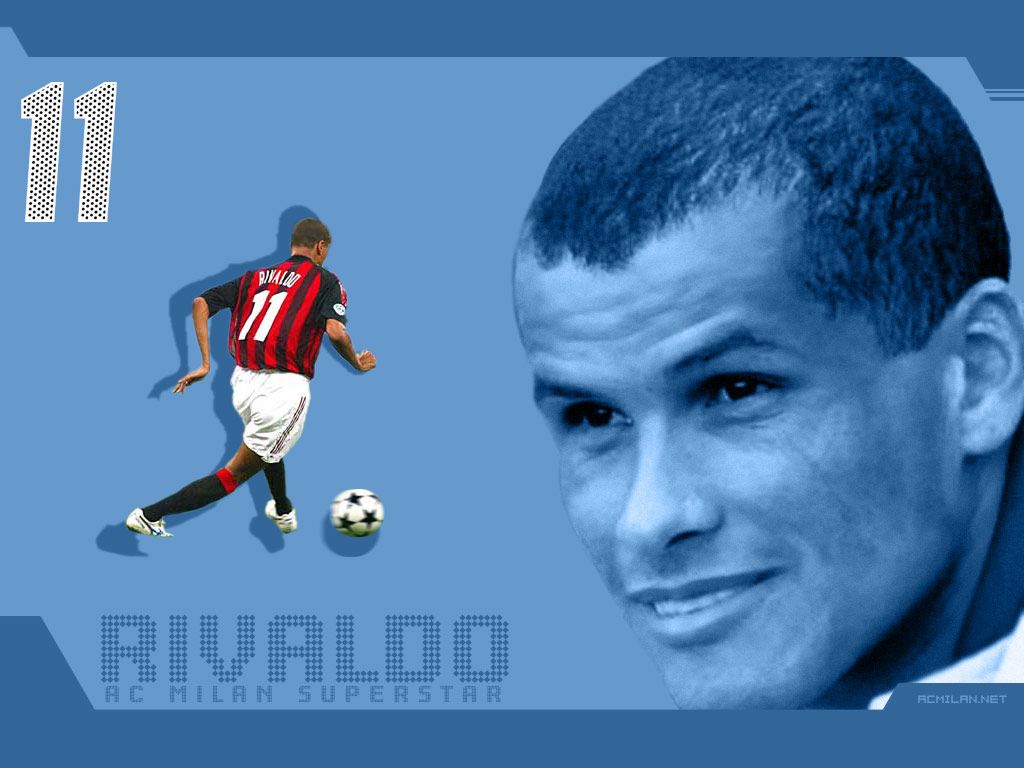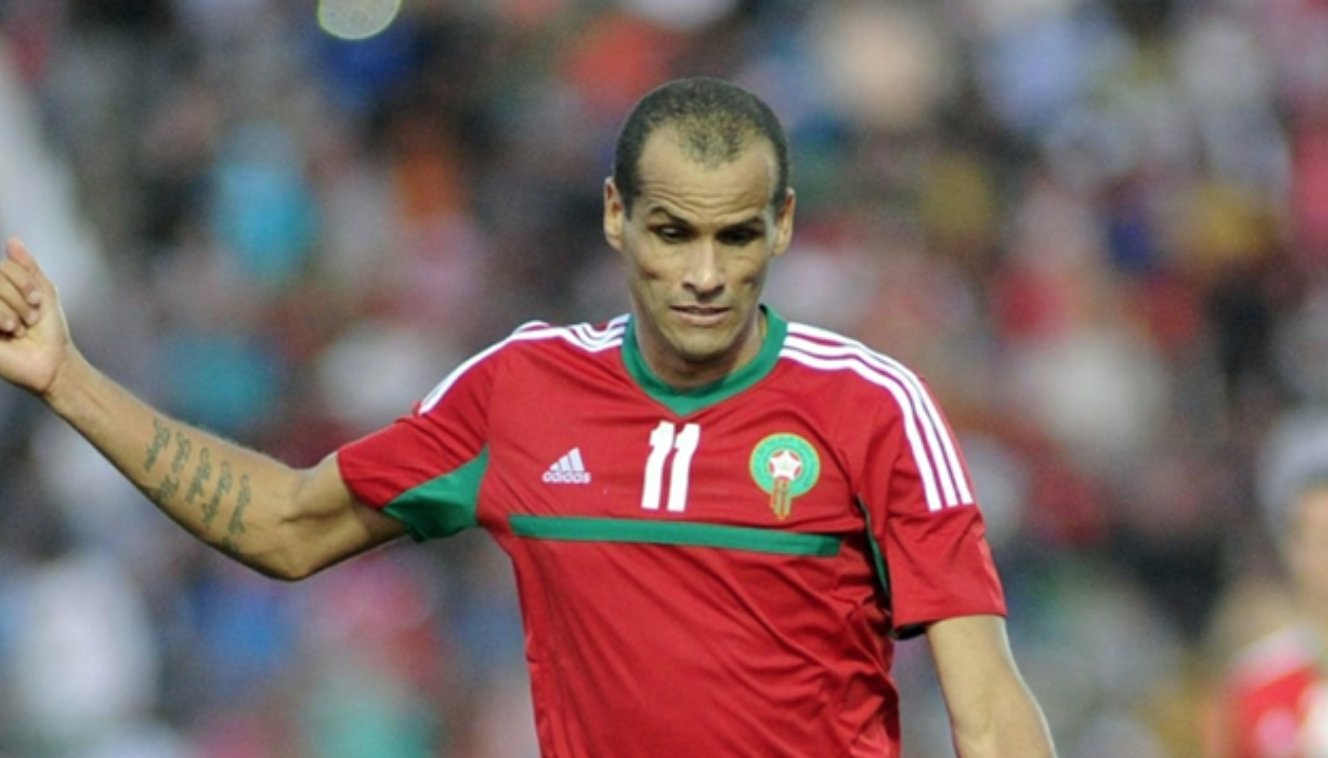Rivaldo (Part 2)
Rivaldo (Part 2)

After officially retiring from football in March 2014, Rivaldo transitioned into a new role as the president of Mogi Mirim, a club close to his heart. His decision to step away from playing was driven by a desire to dedicate more time to overseeing the club's operations and to support his son, Rivaldinho, who was also a player at the club.
In a heartfelt statement released upon his retirement, Rivaldo expressed gratitude to God, his family, and all those who had supported him throughout his illustrious 24-year career. With tears in his eyes, he bid farewell to his playing days, acknowledging the end of an era.
However, Rivaldo's retirement from football was short-lived. In June 2015, he made a surprising return to Mogi Mirim, lacing up his boots once again. This comeback proved to be memorable, as Rivaldo and his son, Rivaldinho, made history by both scoring goals in the same match for the first time as Mogi Mirim secured a 3–1 victory over Macaé on 14 July 2015.
Despite his return to playing, Rivaldo also began exploring opportunities in coaching and management. In January 2019, he accepted an offer from SCC Mohammédia to serve as their new technical director and coach for the upcoming season. However, Rivaldo clarified that the agreement was contingent on the club achieving promotion from the National, the third tier in the Moroccan league, as outlined in a pre-contract he signed.Rivaldo's foray into coaching and management marked a new chapter in his post-playing career, demonstrating his commitment to remaining involved in the world of football and passing on his knowledge and expertise to the next generation of players.
Rivaldo's international career with the Brazil national football team began in 1993 when he made his debut, making an immediate impact by scoring the only goal in a friendly match against Mexico. He continued to represent Brazil at various international tournaments, including the 1996 Summer Olympics, where the team secured the bronze medal, although Rivaldo was not selected for the third-place playoff.
His most significant contributions on the international stage came during the 1998 FIFA World Cup, where he scored three goals, including two crucial ones in the quarter-final against Denmark. Despite Brazil reaching the final, they were defeated 3–0 by hosts France, missing out on defending their 1994 title.However, Rivaldo's disappointment at the World Cup was soon overshadowed by his success at the 1999 Copa América. He played a pivotal role in Brazil's triumph, finishing as the tournament's top scorer with five goals. Among his notable contributions was an equalizing free-kick against Argentina in the quarter-finals and a brace in the final against Uruguay, where Brazil emerged victorious with a 3–0 win. Rivaldo's outstanding performances earned him the title of the Most Valuable Player of the tournament.
Despite his achievements, Rivaldo faced criticism from fans and pundits alike whenever Brazil failed to win tournaments, dating back to the 1996 Olympics. The pressure reached a peak during a match against Colombia in November 2000, where he was heavily booed by the crowd. Such criticism even led Rivaldo to contemplate retiring from international football at one point.
Rivaldo's impact during the 2002 FIFA World Cup was monumental, with his performances playing a crucial role in Brazil's success in winning the tournament. In the second round match against Belgium, his goal prompted Belgian coach Robert Waseige to acknowledge him as the deciding factor. Later, in the quarter-finals against England, Rivaldo scored the equalizer with an assist from Ronaldinho, setting the stage for Ronaldinho's winning goal in a 2–1 victory.
In the final against Germany, Rivaldo continued to shine, contributing significantly to both of Brazil's goals in a 2–0 victory. His shot led to the first goal as Ronaldo capitalized on the rebound, and he also played a key role in the build-up to Ronaldo's second goal. Rivaldo's outstanding performances throughout the tournament led to him being named the best player of the tournament by Brazil coach Luiz Felipe Scolari.
Following the World Cup triumph, Rivaldo's international career gradually came to a close. His last cap for Brazil was on 19 November 2003, in a 3–3 draw with Uruguay. He played a total of 79 minutes before being substituted. In his time representing the national team, Rivaldo accumulated 74 caps and scored 35 goals, leaving an indelible mark on Brazilian football history.
Rivaldo was widely regarded as one of the finest players of his generation and is often considered among the greatest footballers of all time. Known for his exceptional skill and creativity, Rivaldo possessed a wide array of attributes that made him a formidable presence on the field.Despite his height, Rivaldo displayed remarkable agility, dribbling ability, and close ball control. He was adept at using feints to evade defenders and had a knack for finding space in tight situations. Rivaldo's proficiency in dead-ball situations was legendary, with his bending free kicks and penalty-taking skills being particularly notable. He also had a powerful shot from distance and was capable of scoring spectacular goals, including bicycle kicks.
Rivaldo's versatility was another key aspect of his game. While he excelled as a playmaking attacking midfielder, often deployed as a classic number 10, he was also capable of playing as a second striker or on the left wing. His vision and passing ability made him an excellent assist provider, while his acceleration and crossing ability suited him well as a winger. Despite being predominantly left-footed, Rivaldo was comfortable playing on either flank.
In addition to his technical prowess, Rivaldo possessed a strong competitive spirit and was known for his efficiency on the field. He combined artistry with effectiveness, earning praise for his ability to marry British will with continental skill, similar to Diego Maradona. Despite sometimes being overshadowed by his Brazilian counterparts Ronaldo and Ronaldinho, Rivaldo's talent and contributions to the game were widely acknowledged by his peers and football pundits alike.

References
- "Rivaldo open to European move". FIFA. 12 August 2010. Archived from the original on 15 August 2010.
- ^ "Rivaldo to leave Sao Paulo". jazeerasport: Rivaldo to leave Sao Paulo. 2 December 2011.
- ^ "Rivaldo leaves Angola's Kabuscorp". BBC Sport.
- ^ "Aos 40 anos, pentacampeão Rivaldo é o novo reforço do São Caetano (in Portuguese)". yahoo.com. Retrieved 18 May 2017.
- ^ "Veteran Rivaldo leaves 2nd-division club in Brazil". Associated Press. 8 November 2013.
- ^ "Rivaldo signs contract with Mogi until 2015 and may play in the São Paulo State Championship - Sambafoot.com, all About Brazilian Football". www.sambafoot.com. 19 December 2013. Retrieved 18 May 2017.
- ^ "Rivaldo appeals for new investors to fund his club in Brazil". The Guardian. 3 December 2014.
- a b c "Barcelona, AC Milan and Brazil legend Rivaldo retires aged 41". BBC. Retrieved 17 March 2014
- ^ "Rivaldo: World Cup winner and son score in same Brazilian match". BBC Sport. 15 July 2015.
- ^ "Rivaldo denies joining staff at Moroccan club". BBC Sport.
- ^ "Rivaldo é anunciado por time da terceira divisão de Marrocos, mas não aceita convite". ge. 17 January 2019.
- ^ "Rivaldo Vitor Borba Ferreira – Goals in International Matches". RSSSF. Retrieved 18 May 2017.
- ^ Smyth, Rob (19 June 2008). "On Second Thoughts: Rivaldo". TheGuardian.com. Retrieved 25 September 2013.
- ^ Rodrigo Amaral, Rivaldo reflects on wheel of fortune, BBC, 20 June 2002
- ^ Brazil questions Rivaldo's role, BBC, 19 November 2000
































































